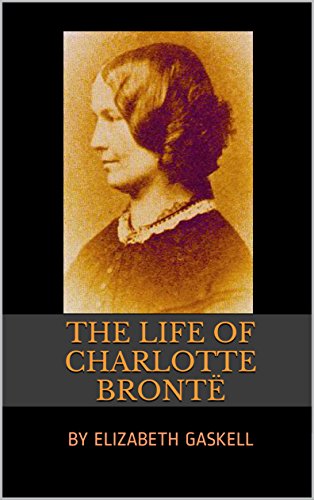The Unz Review • An Alternative Media Selection$
A Collection of Interesting, Important, and Controversial Perspectives Largely Excluded from the American Mainstream Media
Authors Filter? ❌
Algernon Blackwood Anthony Hope Anthony Trollope Anton Chekhov Arthur Conan Doyle Arthur Quiller-Couch Baroness Orczy Benjamin Disraeli Charles Dickens Dinah Craik E. Phillips Oppenheim Edith Wharton Elizabeth Gaskell Eugene Sue F. Marion Crawford G.A. Henty G.K. Chesterton George Gissing George Meredith Gertrude Atherton H. Rider Haggard H.G. Wells Hamlin Garland Henry James Honore de Balzac Horatio Alger Ivan Turgenev Jack London James Fenimore Cooper Joseph Conrad L. Frank Baum L.M. Montgomery Louisa May Alcott Luise Mühlbach Mrs. Humphry Ward Mrs. Oliphant P.G. Wodehouse Robert Louis Stevenson Sax Rohmer Thomas Hardy Upton Sinclair W. Somerset Maugham Walter Besant Wilkie Collins William Dean Howells William Makepeace Thackeray Brantz Mayer A.T. Mahan Abram Leon Adolf Hitler Agatha Christie Albert Jay Nock Alexandre Dumas Andrew Lang Ann Radcliffe Anne Brontë Anonymous Aristotle Arthur Bryant Arthur Pillans Laurie Arthur R. Butz Bible Book Booker T. Washington Bram Stoker Brooks Adams Captain Russell Grenfell Carleton Putnam Cesare Lombroso Charles Callan Tansill Charles Darwin Charlotte Brontë Clark Howard Confucius David Duke David Gordon David Howden David Irving David L. Hoggan David Ray Griffin Douglas Reed Dr. Friederich Karl Wiehe E.A. Ross Eden Phillpotts Edgar Allan Poe Edward Bellamy Edward Gibbon Elbert Hubbard Ellsworth Huntington Emile Zola Emily Brontë Evan Whitton Evelyn Dewey F. Scott Fitzgerald Fanny Burney Faustino Ballvé Felix Adler Ford Madox Ford Francis Parkman Frank Chodorov Frank Norris Frank R. Stockton Freda Utley Frederick Jackson Turner Friedrich A. Hayek Friedrich Engels Fyodor Dostoyevsky G.E. Mitton George Eliot George Jean Nathan Gustav Gottheil Gustave Flaubert Guy de Maupassant H.L. Mencken Hans-Hermann Hoppe Harriet Beecher Stowe Harry Elmer Barnes Heinrich Graetz Heinrich Heine Henry Adams Henry Fielding Henry Ford Henry M. Stanley Henryk Sienkiewicz Herbert Westbrook Herman Melville Hermann Hesse Herodotus Hilaire Belloc Homer Hubert Howe Bancroft Hugh Lofting Isabel Paterson J.M. Barrie Jacob A. Riis James Hayden Tufts James Huneker James Joyce James Rice Jane Addams Jane Austen Jared Taylor Jefferson Davis Jeffrey Tucker Joel S.A. Hayward John Beaty John Dewey John Dos Passos John Galsworthy John Maynard Keynes John Reed John Stuart Mill John T. Flynn John Wear Jonathan Swift Jules Verne Karl Marx Kenneth Grahame Kevin Barrett Kevin MacDonald Knut Hamsun Laurence Sterne Lawrence H. White Leo Tolstoy Leon Trotsky Lewis Carroll Livy Llewellyn H. Rockwell Jr. Lord Acton Lord Dunsany Lothrop Stoddard Louis Marschalko Ludwig von Mises Lysander Spooner Marcel Proust Maria Edgeworth Maria Monk Mark Twain Mary Shelley Mary White Ovington Max Eastman Max Nordau Maxim Gorky Michael Collins Piper Miguel de Cervantes Saavedra Mungo Park Murray N. Rothbard Nathaniel Hawthorne Niccolò Machiavelli O. Henry Oscar Wilde Paul Craig Roberts Per Bylund Peter Brimelow Peter H. Duesberg Plato Plutarch Ralph Franklin Keeling Richard D. Fuerle Richard Francis Burton Richard Lovell Edgeworth Richard Lynn Robert Barr Robert S. Griffin Robin Koerner Rose Wilder Lane Rudyard Kipling S. Baring-Gould Saint Augustine Samuel Butler Sigmund Freud Sinclair Lewis Sisley Huddleston Stanley Weinbaum Stefan Zweig Stendhal Stephen Crane Stephen J. Sniegoski Stephen Mitford Goodson Suetonius Tacitus Theodore Canot Theodore Roosevelt Thomas Babington Macaulay Thomas Bulfinch Thomas C. Taylor Thomas Carlyle Thomas Dixon Thomas Goodrich Thomas Jefferson Thomas More Thomas Nelson Page Thomas Paine Thomas Seltzer Thorstein Veblen Thucydides Ulysses S. Grant Van Wyck Brooks Victor Hugo Virginia Woolf W.E.B. Du Bois Walter Lippmann Walter Scott Wang Huning Washington Gladden Wilfred Wilson Willa Cather Willard Huntington Wright William Graham Sumner William H. Prescott William Henry Chamberlin William Joyce Wilmot Robertson Winston Churchill Winston S. Churchill Woodrow Wilson
Nothing found
Sources Filter? ❌
Periods Filter? ❌
Classical Era 8th Century B.C. 4th Century B.C. 1st Century A.D. 2nd Century A.D. 5th Century A.D. 16th Century 1510s 1530s Pre-1700 1610s 18th Century 1720s 1740s 1750s 1760s 1770s 1790s 19th Century 1800s 1810s 1820s 1830s 1840s 1850s 1860s 1870s 1880s 1890s 20th Century 1900s 1910s 1920s 1930s 1940s 1950s 1960s 1970s 1980s 1990s 2000 and Later 2000s 2010s
Nothing found
Genres Filter? ❌
American Literature British Literature Canadian Literature Children's Literature Classical Literature Fantastic Literature French Literature German Literature History Writing Irish Literature Libertarian Literature Marxist Literature Other European Literature Racialist Literature Russian Literature Science Writing Sociology Writing Victorian Literature
Nothing found
Find Searching...
Title ❌ Author ❌ Period ❌
◄►◄❌►▲ ▼▲▼ • BNext New CommentNext New ReplyRead More
ReplyAgree/Disagree/Etc. More... This Commenter This Thread Hide Thread Display All Comments
or, The Preservation of Favoured Races in the Struggle for Live
A Novel
A Story of the French Revolution
A Tale of the Last Century
A Novel
A Scottish Story
A Tale
A Novel
The Absentee; Madame de Fleury; Emilie de Coulanges; The Modern Griselda
























































